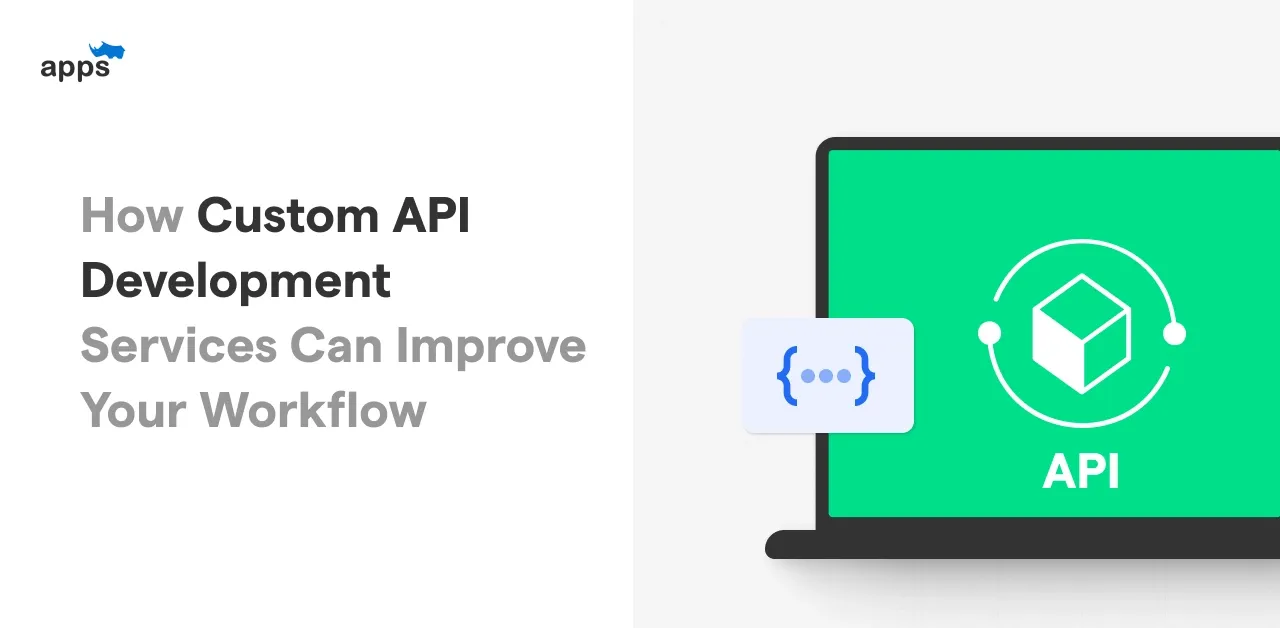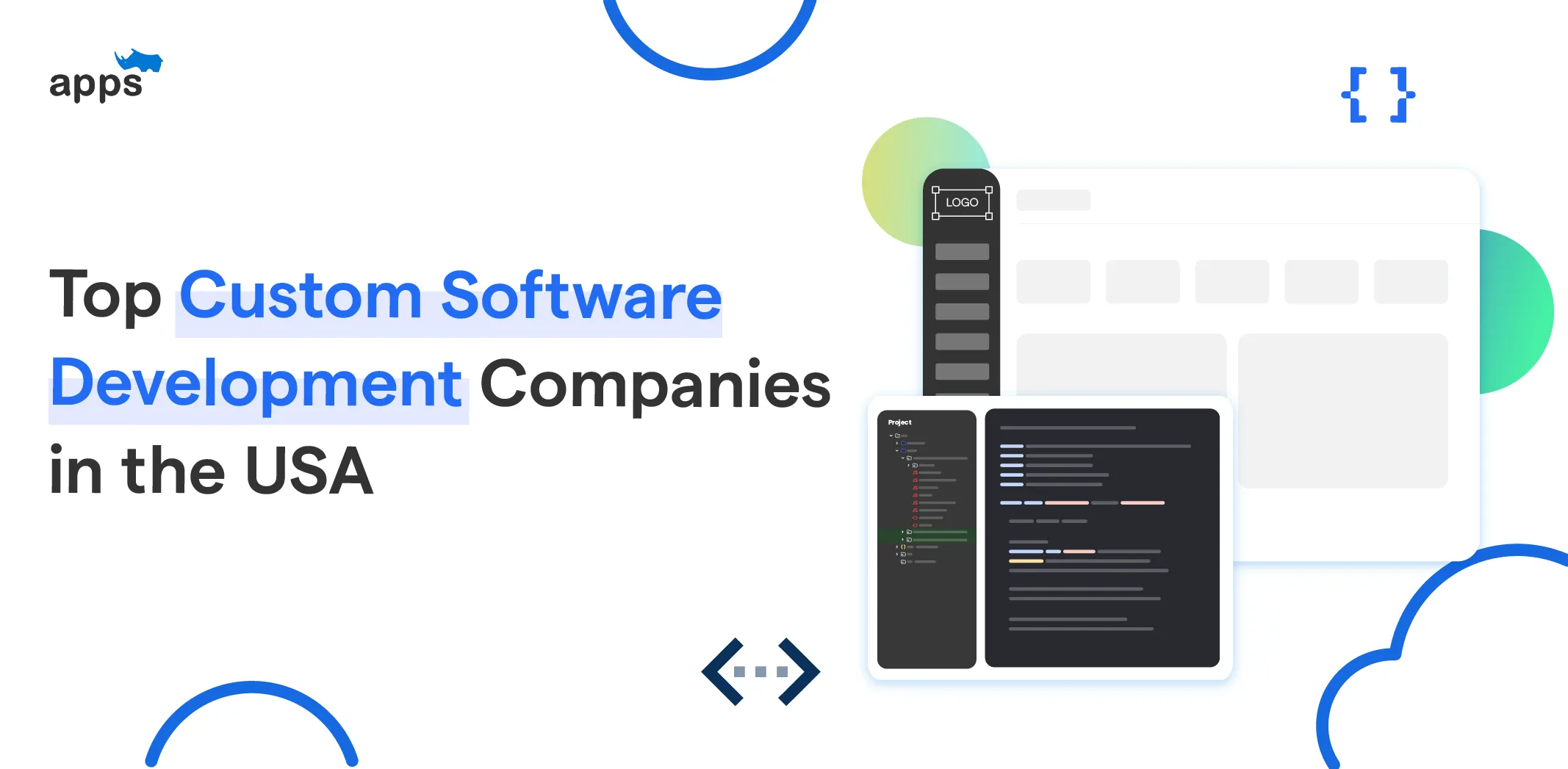- Introduction
- Advantages of using Custom APIs for Workflow improvement
- Enhancing productivity through Custom API development
- Custom APIs for efficient data management
- Case studies and success stories
- Benefits achieved by businesses through API development
- Best practices for incorporating Custom APIs into your workflow
- Conclusion
- Frequently Asked Questions (FAQs)
Table of Contents
How Custom API Development Services can improve your Workflow

Introduction
Let’s imagine you’re a business person who deals with the latest headset. A customer placed an order for a headset on your shopping site. But how would you get the order delivered to the doorstep of your customer?
Simply, you hire a delivery person, give them directions and they deliver the package to the customer and come back to you with the payment.
Don’t worry we are not giving you any vague examples. Here the delivery person is the API who is bridging the gap between you(the system) and the customer(the users).
In the world of computers and the latest technologies, APIs serve as the communication bridge between different software applications and systems, allowing them to interact and share data seamlessly.
APIs, or Application Programming Interfaces, are a set of rules and protocols that make the interaction between different software applications and sites easier.
This is the main reason behind every easy and smooth flight and hotel booking as you do not have to go and wander in each of their websites and manually compare the prices.
Not only that, if implemented correctly, custom API development services can help you streamline lots of workflows. In this blog, we will learn about how you can utilize the benefits of custom API in detail.
Advantages of using Custom APIs for Workflow improvement

Custom APIs offer several advantages for workflow improvement utilizing which, businesses can optimize their workflows, improve efficiency, and achieve better results.
Streamlining processes and reducing manual tasks
Manual tasks are outdated especially when you want quick results without spending much. And API developers know it well.
They customize the API in such a way that it can automate any repetitive task and make quick interactions between different software systems this helps with streamline processes, saving time and reducing errors.
For example, a custom API can automatically transfer customer data from a CRM system to an email marketing platform, eliminating the need for manual data entry.
Enabling automation and integration with third-party applications
Custom APIs allow businesses to integrate their internal systems with external applications and services. This integration enables efficient data sharing, real-time updates, and synchronized processes between multiple systems.
For instance, a custom API can connect an e-commerce platform with a shipping service, automatically updating order status and tracking information.
Custom APIs facilitate the seamless integration of third-party applications, such as payment gateways, marketing tools, or customer support systems.
This integration eliminates the need to switch between multiple platforms, improving productivity and ensuring a unified user experience.
Enhancing collaboration and data accessibility
Custom APIs enable different teams and departments within an organization to access and share data easily. By integrating systems and providing secure access to information, APIs enhance collaboration and decision-making processes.
For example, a custom API can connect an inventory management system with a sales platform, ensuring accurate and up-to-date product availability information for the sales team.
Facilitating efficient data management
APIs can be designed to retrieve specific data sets, update records, or generate reports, enabling efficient data retrieval and analysis.
This streamlined data management enhances productivity, reduces errors, and supports data-driven decision-making.
Enhancing productivity through Custom API development
Custom APIs can also enable efficient communication with customers, through chatbots, email marketing, or customer support systems. By automating communication processes, API-powered applications can save time and improve customer satisfaction.
Real-time data access and updates

Custom APIs provide real-time data access and updates, enabling efficient and accurate decision-making processes.
This real-time information exchange ensures that data is up-to-date and synchronized across different systems, enabling teams to make informed decisions faster.
For instance, a custom API can connect software with a project management tool, automatically updating the status of tasks and informing the team of schedule changes.
Improving collaboration and communication
Custom APIs enhance collaboration and communication among teams, facilitating efficient data sharing and streamlined workflows.
Teams can work together in real time and access data from different systems, regardless of location, improving productivity and collaboration.
For example, a custom API can integrate a chat platform with a project management tool, enabling team members to communicate and share project updates in real time.
Custom APIs for efficient data management
A custom API can enable secure and efficient data sharing between the two platforms. Using this you can easily share data between two software easily.
Securing data and enabling data sharing
APIs can be designed to authenticate users, restrict access to certain data sets, and encrypt data transmissions, enhancing security and privacy.
By providing secure data-sharing capabilities, APIs enable efficient collaboration between teams, departments, and external partners.
Simplifying data retrieval and analysis
By streamlining data retrieval and analysis, APIs allow development teams to make informed decisions faster, improving productivity and performance by retrieving specific data sets, updating records, or generating reports, and enhancing data management and analysis capabilities
Supporting scalability and adaptability
For a successful running and functioning of your business, you need to make sure your software can be scaled and adapted accordingly.
Custom APIs can be designed to accommodate changing requirements, integrate with new applications and systems, and support growth and expansion. By providing flexible data management capabilities, APIs help businesses optimize their workflows and support long-term viability.
Case studies and success stories
Shopify

Shopify, an e-commerce platform, has successfully used custom APIs to improve its workflow and enhance its platform's capabilities. By providing a robust API that allows integration with various third-party applications and services, Shopify has empowered businesses to streamline their operations.
Custom APIs enable seamless data synchronization between Shopify and other tools, such as inventory management systems and accounting software, resulting in improved inventory management, accurate financial tracking, and efficient order processing.
Slack
Slack, a popular team collaboration platform, has leveraged custom APIs to enhance workflow and productivity for teams. By allowing developers to build custom integrations and bots using Slack's API, businesses can automate tasks and streamline communication.
Custom APIs enable seamless integration with other tools, such as project management systems, customer support platforms, and marketing tools. This integration eliminates the need to switch between different applications, reducing the context-switching time and improving overall productivity.
Trello

Trello, a visual project management tool, has seen success by providing custom APIs that enable businesses to enhance their workflow and harness the power of automation. Custom APIs allow for integration with other tools and services, such as time-tracking applications, communication platforms, and issue trackers.
By automating the flow of information and tasks between different systems, businesses can save time, reduce manual effort, and ensure a synchronized workflow.
Benefits achieved by businesses through API development
In summary, businesses that have implemented custom APIs have achieved significant benefits, including time and cost savings, enhanced productivity and efficiency, improved customer experience, and scalability.
Time and cost savings
Custom APIs automate manual tasks, eliminate manual data entry, reduce errors, and streamline processes. By connecting different systems and enabling seamless data transfer, businesses can save time and reduce operational costs associated with manual interventions and data discrepancies.
Enhanced productivity and efficiency

API development allows businesses to optimize their workflows and improve efficiency. Integration with third-party applications and services through custom APIs simplifies tasks, reduces duplicated efforts, and enables real-time data updates. This enhanced productivity leads to more streamlined processes, faster decision-making, and improved overall efficiency.
Improved customer experience
Custom APIs enable businesses to provide a seamless and integrated experience to their customers. By integrating systems such as CRM, marketing platforms, and customer support tools, businesses can ensure consistent data and personalized interactions. This integration leads to better customer engagement, improved customer service, and increased customer satisfaction.
Scalability and adaptability
API development allows businesses to scale their operations and adapt to changing needs and requirements. Custom APIs can be updated and expanded to accommodate new functionalities and integrations, supporting business growth and ensuring long-term viability.
Best practices for incorporating Custom APIs into your workflow
Incorporating API in your daily operations will require some practices to follow. These practices will make sure your API provides fruitful outcomes:
Identifying requirements and goals
Before diving into API development, it is crucial to identify the specific requirements and goals you have for your business.
Understand how APIs can enhance your workflow and improve productivity, and evaluate areas where data integration, automation, or collaboration can bring the most value. Clearly defining your requirements and goals will help guide the development process and ensure that the API aligns with your business needs.
Choosing the right API development partner
Not only deciding your goals but also selecting the right API development partner is crucial for achieving success. Look for a partner with expertise in API development, a strong track record, and a deep understanding of your industry.
Assess their technical capabilities, experience, and ability to deliver customized solutions. Additionally, consider their ability to provide ongoing support, scalability, and security measures.
Maintaining and updating APIs for long-term productivity improvement
API development doesn't end once the initial integration is complete. It is important to maintain and update your APIs for long-term productivity improvement. Regularly monitor the API's performance, security, and compatibility with the systems it integrates with.
Implement different strategies to manage updates and ensure backward compatibility. Stay updated with the latest industry standards and security practices to keep your APIs secure and up-to-date.
Conclusion
To conclude, APIs are the modern age solution for businesses seeking to streamline their tasks which will eventually help to reach more user base. Along with that, it improves the productivity of the workforce by eliminating manual tasks so that employees can focus on some important jobs.
Real-world examples such as Shopify, Slack, and Trello have demonstrated how businesses can leverage custom APIs to achieve these benefits.
To successfully incorporate custom APIs into your workflow, it is important to follow best practices such as identifying requirements and goals, choosing the right API development partner, and maintaining and updating APIs for long-term productivity improvement.
We hope that by following the above-mentioned steps you will be able to integrate API into your system and utilize its benefits for the streamlining of your business.
Suggested Reading : How to Select the Best Tools for Custom API Development?
Frequently Asked Questions (FAQs)
What is custom API development?
Custom API (Application Programming Interface) development is a process of creating APIs tailored to meet the needs and requirements of a business.
It is a software interface that enables communication between two or more applications, allowing data to be exchanged and accessed by multiple services, devices, and platforms.
What are the benefits of custom API development for businesses?
Custom API development provides numerous benefits to businesses. It improves workflow automation, enhances collaboration, and streamlines processes by integrating different systems and applications.
It also enables real-time data synchronization, providing businesses with accurate, timely data to make informed decisions.
Custom APIs can improve customer engagement, satisfaction, and loyalty by providing a seamless and integrated experience across multiple channels and touch-points.
How long does it take to develop a custom API for my business, and what is the cost involved?
The time and cost involved in custom API development depend on factors such as the complexity of the project, the functionality required, and the development partner chosen. On average, the development process can take anywhere from several weeks to several months.
The cost can vary depending on the development time, level of functionality, and ongoing maintenance requirements.
How do I choose the right API development partner for my business?
Choosing the right API development partner involves several considerations, such as their technical expertise, years of experience, portfolio of successfully completed projects, and their ability to understand your business requirements and goals.
You should look for a partner with strong communication skills and a collaborative approach to ensure that the API meets your specific needs.
Table of Contents
- Introduction
- Advantages of using Custom APIs for Workflow improvement
- Enhancing productivity through Custom API development
- Custom APIs for efficient data management
- Case studies and success stories
- Benefits achieved by businesses through API development
- Best practices for incorporating Custom APIs into your workflow
- Conclusion
- Frequently Asked Questions (FAQs)




